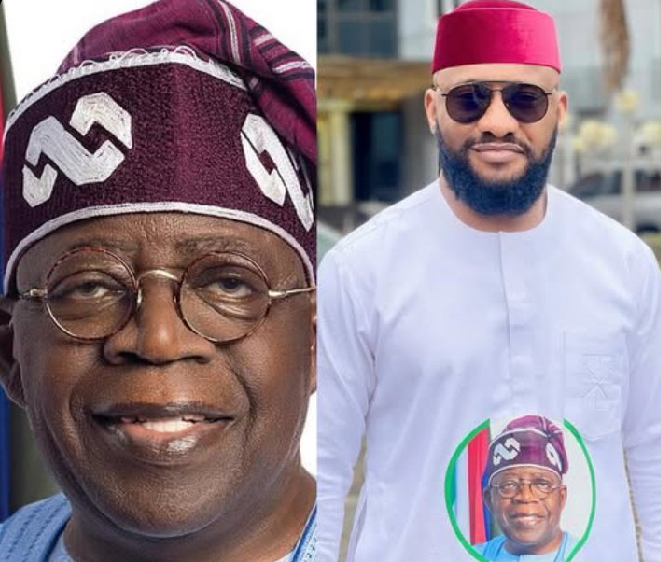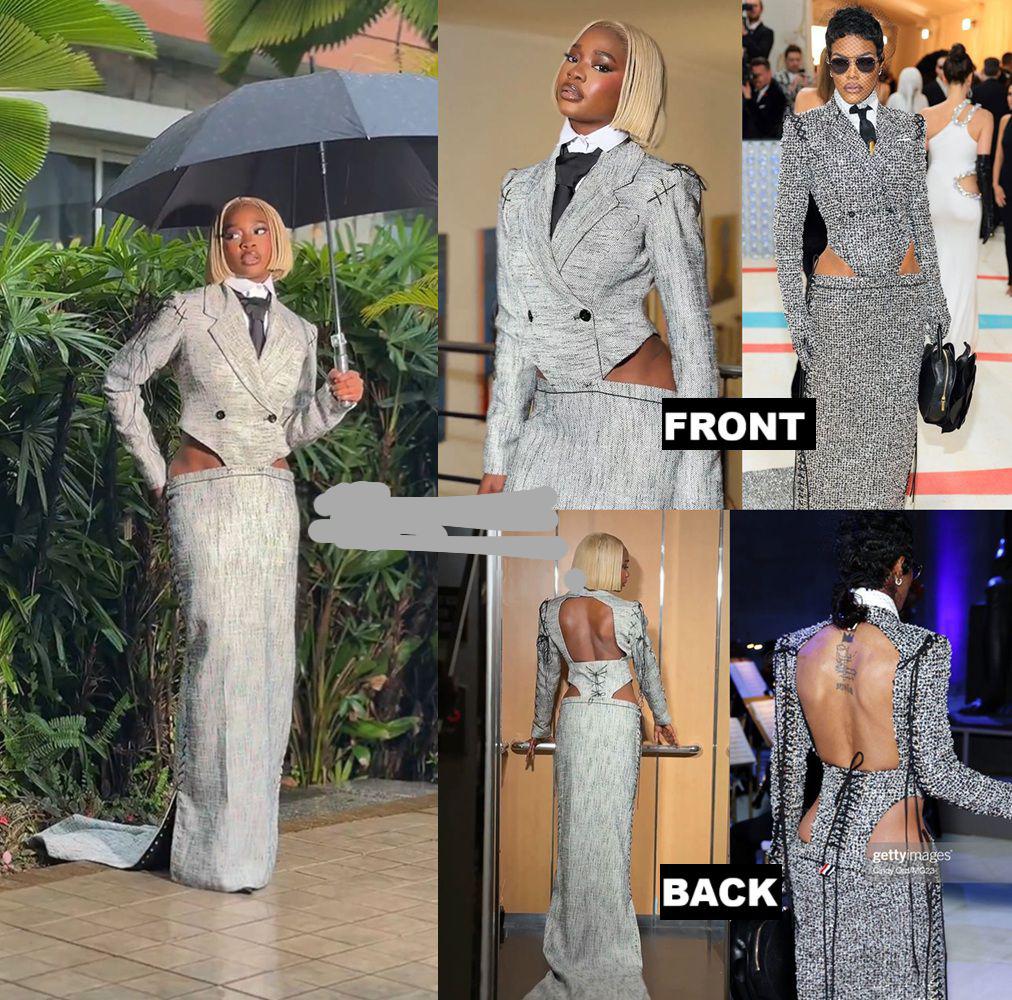
“Bring Back the Cashless Policy!” – Yul Edochie Urges President Tinubu in Bold Public Statement

In a surprising but striking appeal that has begun generating ripples across the nation, Nollywood actor and political commentator, Yul Edochie, has called on President Bola Ahmed Tinubu to reintroduce the cashless policy that was previously implemented under the administration of former President Muhammadu Buhari. Known for his outspokenness and controversial views on national matters, Edochie took to his official social media pages earlier today to make the passionate plea, stressing the urgent need for Nigeria to return to a system that minimizes physical cash transactions and strengthens digital financial infrastructure.
Yul Edochie, son of veteran actor Pete Edochie and an influential voice both on and off screen, did not mince words in his message to President Tinubu. According to him, the reintroduction of the cashless policy is not just a matter of convenience but a national economic necessity. He pointed out that the brief implementation of the policy, though flawed in execution, had begun to reshape the financial behavior of Nigerians, bringing a sense of order and accountability to a system that for too long had relied heavily on physical cash and informal transactions.
Edochie’s call comes at a time when the country is grappling with inflation, rising cost of living, and increasing insecurity. In his post, which has now gone viral and sparked widespread debate, he noted that Nigeria's current cash-dominant economy continues to fuel corruption, robbery, money laundering, and political manipulation. He expressed disappointment that the Tinubu-led administration had not only distanced itself from the policy but had also failed to offer a robust alternative that reflects the realities of a modern, digital-first global economy.
"The cashless policy was a step in the right direction," Edochie stated. "Yes, it was poorly implemented. Yes, it came with hardship. But that is no reason to discard it entirely. Every reform comes with discomfort. The question is—do we fix the flaws or do we throw away progress because it pinched us a little? Mr. President, we must go forward, not backward."
The actor’s statement has ignited a flurry of reactions from Nigerians across various sectors. While some netizens lauded Edochie’s courage to speak up on a pressing national issue, others criticized him for what they termed “a celebrity’s oversimplification of a complex economic matter.” However, even among critics, there seems to be a growing consensus that the idea of a cashless economy is inevitable, and the nation must eventually return to that path—albeit with better planning and infrastructure.
Yul Edochie’s advocacy is not new. In the past, he has shown strong interest in national development and has never shied away from offering his two cents on government policy, leadership failures, and the role of the youth in shaping Nigeria’s future. His foray into politics, including his gubernatorial ambition in Anambra State and his strong social media presence, has earned him a loyal fan base that looks to him for more than just entertainment.
It will be recalled that the cashless policy was launched by the Central Bank of Nigeria (CBN) under former Governor Godwin Emefiele, with the goal of reducing excessive reliance on physical cash, curbing crime, encouraging financial inclusion, and driving innovation in the fintech space. The policy reached its controversial peak in late 2022 and early 2023, when cash withdrawal limits and the redesign of the naira sparked nationwide confusion, bank runs, and economic slowdowns. Despite the chaos, digital transactions skyrocketed during the period, indicating a readiness among the people to embrace the digital shift if given the right tools and infrastructure.
However, when President Tinubu took office, his administration seemed to distance itself from the policy amid public backlash and technical challenges. The naira redesign was put on hold, and the CBN walked back several aspects of the policy, reinstating cash availability and reversing withdrawal limits. For many, it felt like a return to the status quo—a move that critics argue undermines long-term economic reforms.
Edochie, in his address, acknowledged the pains Nigerians went through but emphasized the importance of enduring short-term suffering for long-term gain. “It’s not about politics, it’s about posterity. Do we want a better Nigeria or not?” he asked pointedly. He also called on his fellow entertainers, influencers, and public figures to lend their voices to important conversations about policy, saying, “It’s time celebrities stop sitting on the fence. We must speak on policies that affect the common man, not just brand endorsements and entertainment.”
Edochie’s statement has sparked a renewed public discourse on the merits and flaws of the cashless policy. Economists have weighed in, some warning against a rushed implementation, while others agree that a modified, gradual reintroduction of the policy could help address current financial inefficiencies. Banking analysts, too, have noted that while the infrastructure for a full cashless economy is not yet adequate, the digital transformation of banking in Nigeria is well underway and cannot be ignored.
Political observers are now watching closely to see if President Tinubu or the Central Bank will respond to the actor’s passionate plea. Given the administration’s emphasis on economic reform and digital innovation, some believe that Edochie’s call could be the spark that reignites a policy discussion that has been dormant since the change of leadership.
Meanwhile, social media platforms like X (formerly Twitter), Facebook, and Instagram have been flooded with hashtags such as #BringBackCashlessPolicy, #YulEdochieSpeaks, and #DigitalNigeria. Nigerians at home and in the diaspora are sharing their experiences during the cashless phase—some highlighting the ease of digital payments, others recalling the agony of cash scarcity and poor internet infrastructure.
Whether Yul Edochie’s statement will lead to policy action remains to be seen. But one thing is clear—the conversation is back, and it is louder than ever. As one commenter aptly put it, “Yul might be an actor, but this isn’t a movie. Nigeria needs to move forward, and sometimes, it takes an unexpected voice to remind us of the direction we were meant to go.”


